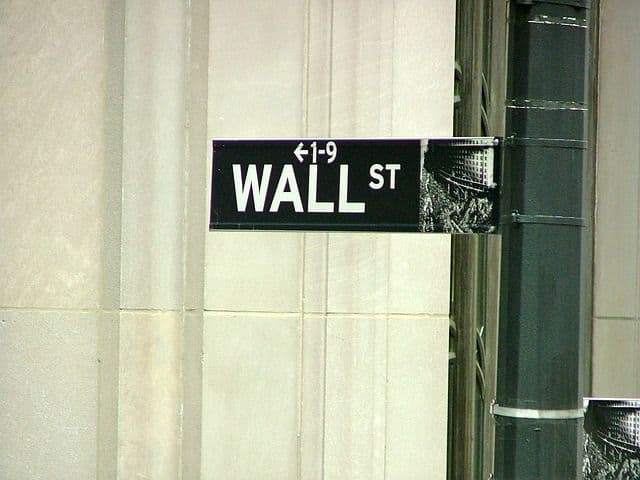Wall Street is finally looking into Cryptocurrencies
After writing off cryptocurrencies for years, Wall Street seems to be keen on cashing in on cryptocurrencies and their underlying blockchain technology lately. Some of the most prominent banks including JP Morgan and Goldman Sachs have started trading in bitcoin […]

After writing off cryptocurrencies for years, Wall Street seems to be keen on cashing in on cryptocurrencies and their underlying blockchain technology lately. Some of the most prominent banks including JP Morgan and Goldman Sachs have started trading in bitcoin derivatives through their fund manager clients. Some banks have also reportedly started developing unspecified arrays of products and services by hiring young crypto developers.
Banks seem to be finding new horizons as per Ben McLannahan of The Financial Times. “Custody, or the business of keeping financial assets safe and accounted. Analysts say that if the banks get it right, providing services comparable to mainstream custody specialists like BNY Mellon or State Street, they could unlock billions of dollars of investment in crypto from funds required by law to keep assets with a qualified custodian, and hence a whole new world of fees.”
Wall Street’s Historical Blind-Eye
Wall Street’s stand on cryptocurrencies has traditionally ranged from general indifference to outright hostility. James Dimon, the Chief Executive Officer of JP Morgan Chase had said in September of 2017 that Bitcoin “is a fraud” and will blow up. Last week, he noted that crypto assets are not backed by “law, police or the courts” unlike gold or the US dollars.
A research note by Goldman Sachs had put ‘cryptocurrency mania’ as one of its top risks along with terrorism, populism and cyber attacks.“It is worse than tulips bulbs,” Dimon said, referring to the famous market bubble from the 1600s.
Wall Street’s problem with cryptocurrency stems from the fact that it cannot be handled physically unlike a wad of cash or bar of gold. This results in the technical problem of the safety of stock exchanges and protection against the hacker threats also bringing along with it the psychological impact on traditional investors.
The remedy: Cold Storage
An overwhelming majority of the coins stolen in the past were from ‘hot wallets’ – customer accounts held on crypto exchanges connected to servers. However, coins stashed in ‘cold storage’ – stored in hard drives completely disconnected from the web have proven to be much safer. This has resulted in an emerging breed of custodians experimenting with computers in vaults in multiple locations protected by randomly generating backup keys to fortified bunkers in the swiss alps. New york city based ItBit and Gemini are frontrunners in this field.
The Japanese broker Nomura is the first in the industry to try to close the gap by entering into a three way venture called Komainu. Switzerland’s stock exchange which is a part of the SIX group owned by a conglomerate of 130 banks announced plans for a venue for trading, storing and settling coins last month.
The growing demand by big investors is the reason for this recent flurry to set up platforms according to Sam McIngvale of Coinbase Custody based in San Francisco, which works with ETC, a registered broker dealer. According to him, about $5bn of institutional crypto assets will be cold stored by Coinbase Custody this year, about a quarter of the total they store for retail investors currently. Sam quoted that people chanted: “We were already holding bitcoin with you, we trust you, but we need more; we need a regulatory, we need monthly statements, we need different insurance”, he says.
The bottom-line
We are seeing the demise of crypto as an asset class. A log of obituaries kept by a site called 99bitcoins already has 306 and is still counting, many of them noting crypto’s extreme volatility.
The sands of time have also changed Wall Street’s attitude towards crypto, with big banks already hedging their bets. At the economic club of New York last week, Goldman chief executive Lloyd Blankfein noted that money has often “morphed” into unexpected forms. He further noted that it would be “arrogant” to assume that Bitcoin would never make the grade as a medium of exchange, a unit of account or a store of value.
The bottom line is that traditional institutions are now coming to terms with the fact that cryptocurrencies and blockchain technology is here to stay and the argument for its adoption is now stronger than ever. Hence, the implication of recent innovations is that Wall Street is finally coming out and getting ready to cash in on cryptocurrencies.
Follow us on Twitter, Facebook, Steemit, and join our Telegram channel for the latest blockchain and cryptocurrency news





























